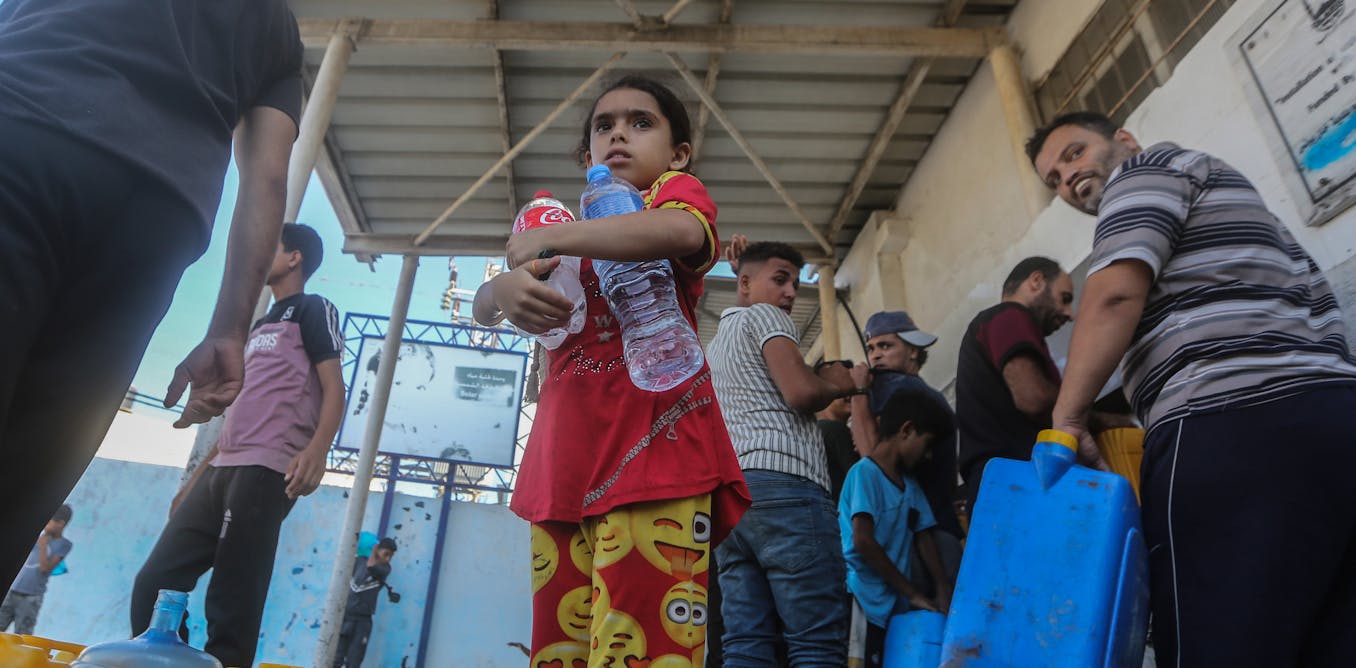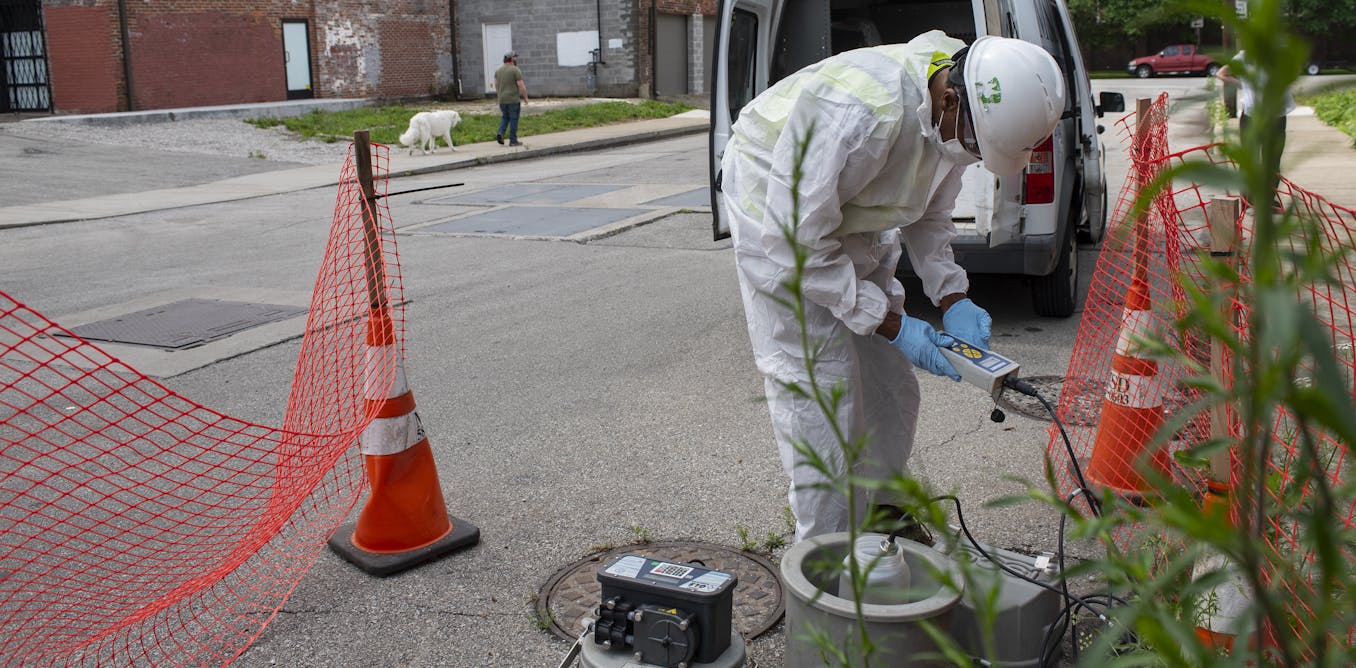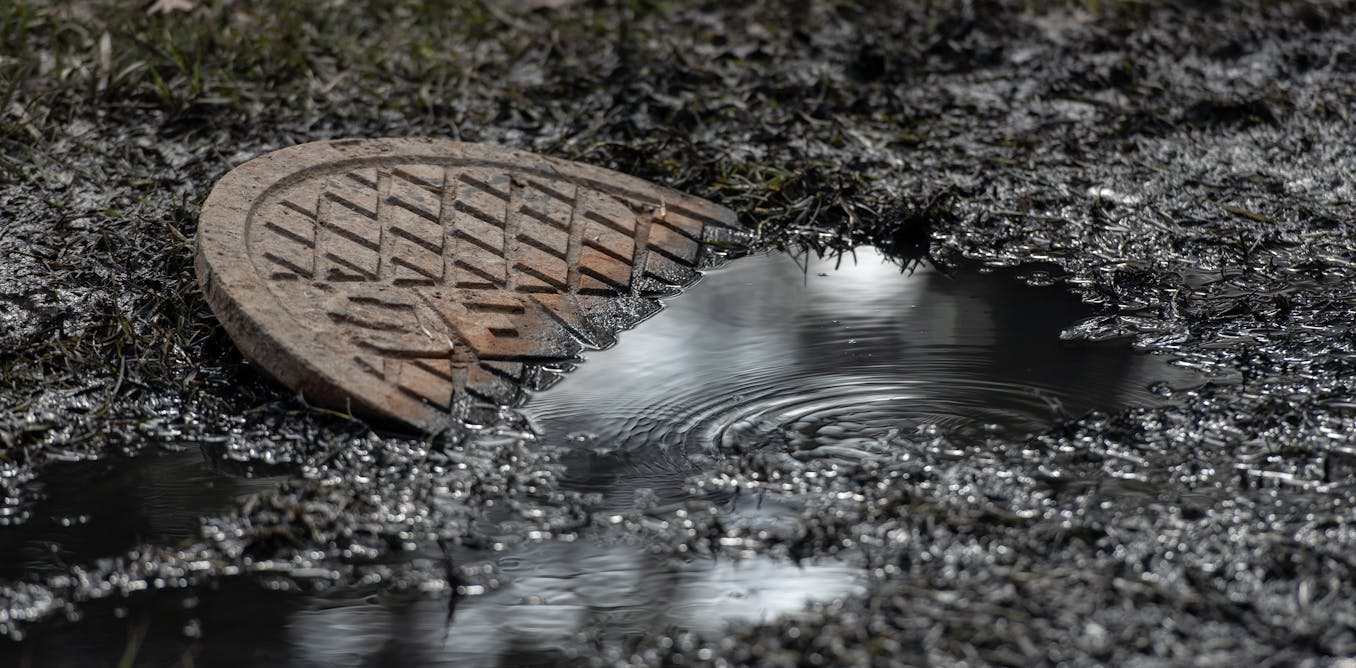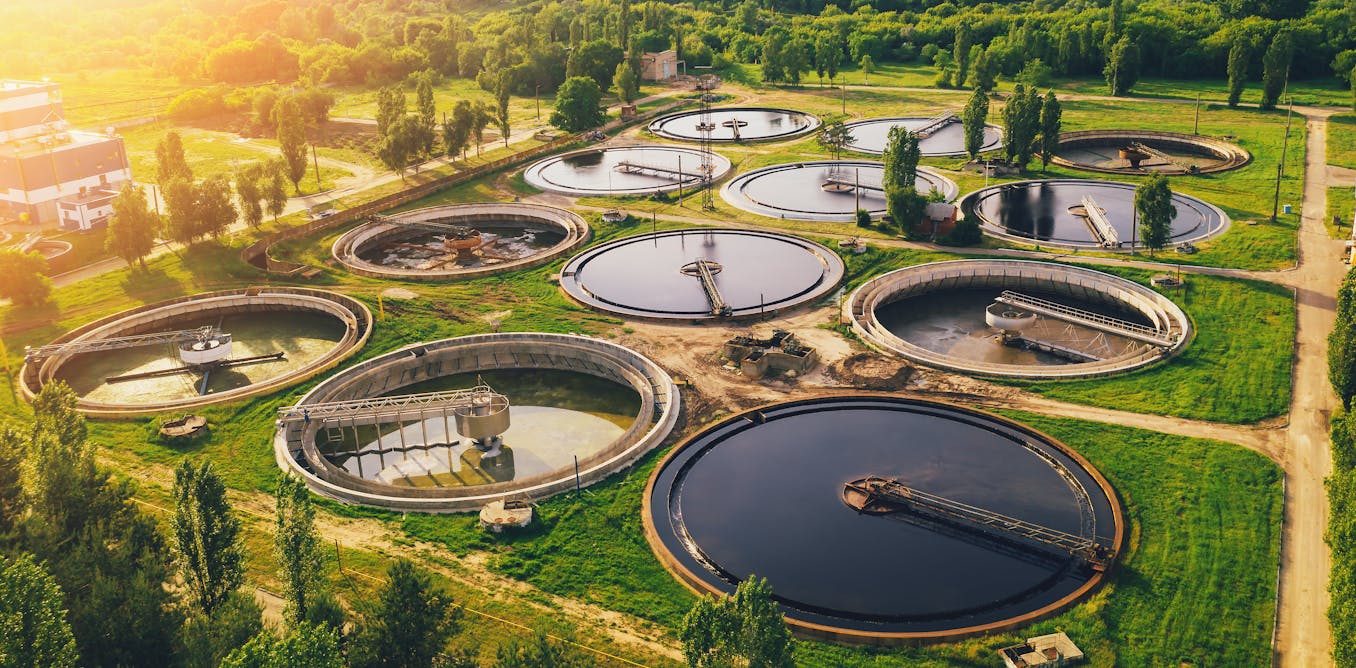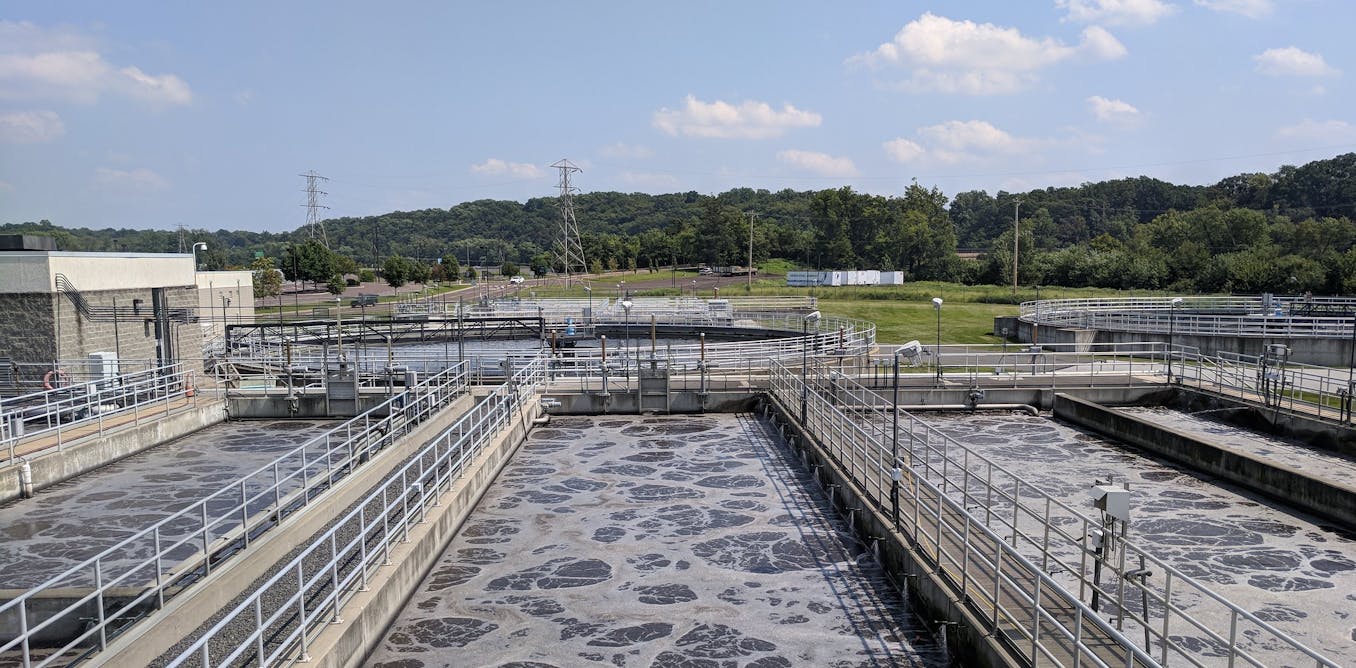Collaborative water management can be a building block for peace between Israelis and Palestinians
As the war between Hamas and Israel grinds forward, two experts explain how Israelis and Palestinians have cooperated to tackle their region’s water challenges.
Oct. 30, 2023 • ~11 min
Who sees what you flush? Wastewater surveillance for public health is on the rise, but a new survey reveals many US adults are still unaware
Public health officials monitor sewage in local communities to track COVID, polio, flu and more. But no one asks the people being monitored for their permission – raising some questions and concerns.
Oct. 31, 2022 • ~6 min
How to steer money for drinking water and sewer upgrades to the communities that need it most
Congress has approved billions of dollars to fix water and sewer systems across the US. But getting that money to needy communities depends on how states define a key word.
Oct. 10, 2022 • ~10 min
Fracking: the simple test for whether it should happen in the UK
Fracking in the UK has a difficult history – economic theory suggests that whether fracking should occur is a simple case of consent and compensation.
Oct. 4, 2022 • ~6 min
Wastewater monitoring took off during the COVID-19 pandemic – and here's how it could help head off future outbreaks
Over 800 sites across the US report coronavirus data from sewage to the CDC. Here’s how this kind of surveillance system works and what it can and can’t tell you.
May 4, 2022 • ~10 min
Sewage-testing robots process wastewater faster to predict COVID-19 outbreaks sooner
A community's wastewater can predict coronavirus cases that haven't yet been diagnosed. The quicker that information is known, the better.
March 11, 2021 • ~5 min
Testing sewage can give school districts, campuses and businesses a heads-up on the spread of COVID-19
As the world waits for vaccines against COVID-19, testing wastewater can give communities and smaller locales, such as school districts, valuable signals about infections trends.
Nov. 24, 2020 • ~11 min
/
2


